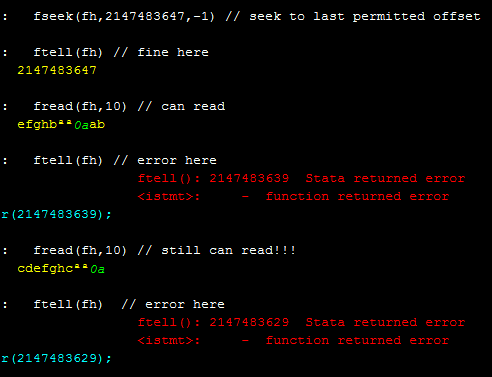Hello,
I have been attempting to run an ACS dataset given to me by a Stata 13 user, but I am a Stata 11_IC user. I have used -use13- before, but it was on a much smaller dataset. I am concerned that it simply is too big to be converted. The file size is 4.40gb I was wondering if there is a filesize limit for -use13-, as I was unable to see any in the documentation, however there was one older post on this forum that seemed to hint at a 2gb limit. This problem is not critical as I will likely just ask for a conversion of the data by the guy who gave it to me, but I thought it would be useful to be included in the forum.
I have been attempting to run an ACS dataset given to me by a Stata 13 user, but I am a Stata 11_IC user. I have used -use13- before, but it was on a much smaller dataset. I am concerned that it simply is too big to be converted. The file size is 4.40gb I was wondering if there is a filesize limit for -use13-, as I was unable to see any in the documentation, however there was one older post on this forum that seemed to hint at a 2gb limit. This problem is not critical as I will likely just ask for a conversion of the data by the guy who gave it to me, but I thought it would be useful to be included in the forum.
Code:
. use13 "C:\Users\Sean\Documents\2014 - ACS Dataset V1\2014 - ACS Dataset V1.dta"
Converting file C:\Users\Sean\Documents\2014 - ACS Dataset V1\2014 - ACS Dataset V1.dta
unexpected text found: ØC ,instead of <value_labels> _use13_fskipstr(): 610 file format error
_use13_convert(): - function returned error
use13(): - function returned error
<istmt>: - function returned error
r(610);
. which use13
c:\ado\plus\u\use13.ado
*! version 1.0.1 19jun2013
*! Sergiy Radyakin, 2013
*! ff83ef0b-3d9d-4b19-a519-90f13b6e8257


Comment